Lancashire furnituremaker Timeless Chesterfields is calling on British companies to do their part to close the skills gap and support local manufacturing, following the successful launch of its new framemaking division.
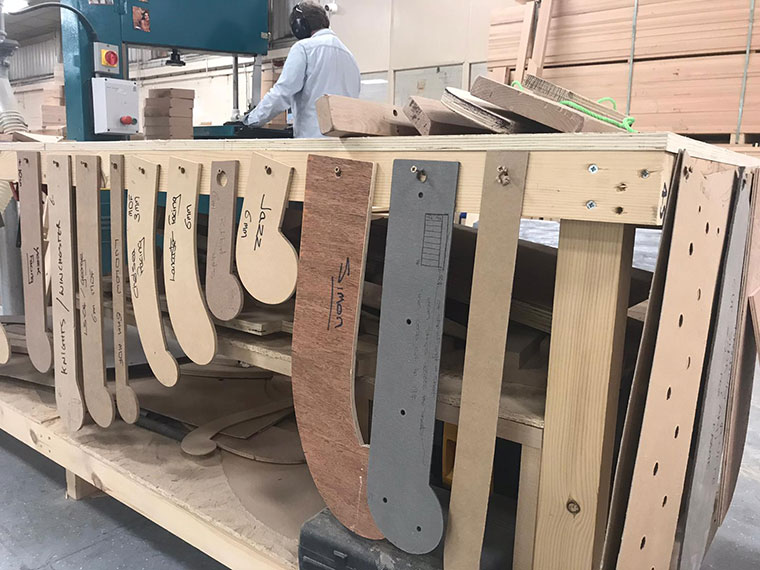
Back in 2017, the luxury sofa brand decided to start producing its hardwood furniture frames in-house, helping to promote British craftsmanship and foster a new generation of skilled framemakers.
Now, the company employs 10 full-time framemakers in a new dedicated factory space, with plans to continue investing in the division as the company grows.
Following the success of the new team, the company is calling on other British manufacturers to follow in its footsteps to help close the country’s widening
skills gap.

Traditional craftsmanship skills are becoming rarer in the UK, with more and more companies preferring to source products from cheaper suppliers overseas. Additionally, fewer people are taking up apprenticeships, meaning the country is facing a serious skills shortage as the current generation of skilled craftspeople retire over the next few years.
Matt Deighton, MD at Timeless Chesterfields, believes that British companies hold the key to reversing the skills gap. He says: “As with traditional upholstery skills, framemaking is a craft. Preserving and nurturing these skills for future generations is a responsibility we’re privileged to carry.
“We now have a team of 10 wonderful artisans making our frames in a dedicated factory space. Looking ahead, we’ve also got exciting plans for new machinery to expand our capabilities, and a dedicated wood polishing workshop.”
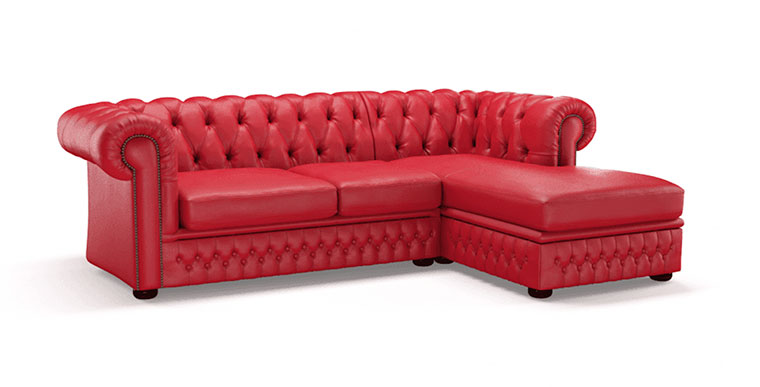
Speaking about the decision to take the process in-house, he says: “Before setting up our own team of framemakers in 2017, we did what many companies in our industry
do, which was to outsource our frame production.
“This worked well for many years, as we forged strong relationships with local companies. But, over time, things began to change. There were very few framemakers around anymore, and fewer still that wanted to make quality frames. And there was no-one that could offer the bespoke alterations that allow you to make a sofa unique — a key part of our service.
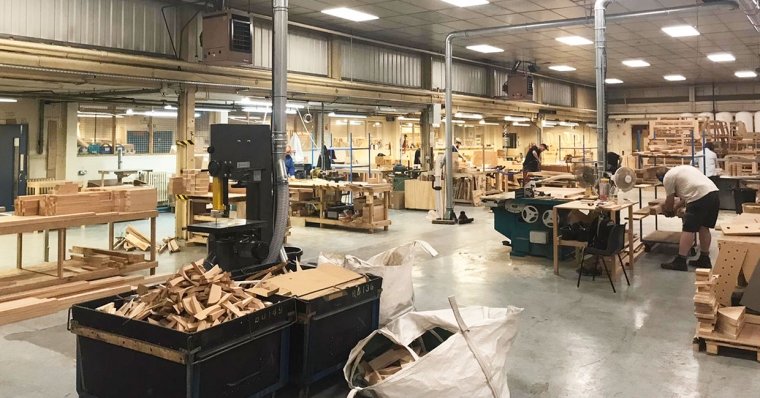
“We’re committed to the art of quality framemaking. The frame is the foundation for every piece of furniture we lovingly handmake. So, while we could have taken the easy route and sourced cheaper frames, we knew we had to do better.”
Matt is hopeful that the success of Timeless Chesterfields’ decision to make its own frames will spur other British companies on to invest in British craftsmanship.
“We’ve shown that there really is a place for highly skilled, traditional craftspeople in the modern world. I’d strongly suggest that other companies who are in a position to do so consider supporting traditional trades in any way
they can.”

A framemaker’s view on the skills gap
Workshop manager Danny Hunt (pictured) is one of the skilled workers who produce bespoke hardwood frames at Timeless Chesterfields’ Lancashire factory.
Speaking about the importance of British craftsmanship, he says: “Unfortunately, there does seem to be a shortage in skilled craftsmen in this field, and I think this is something that maybe needs addressing from the ground up.
“We need to start promoting this sort of job in schools and showing young people that the prospects and skills achievable on this career path can be very rewarding.”
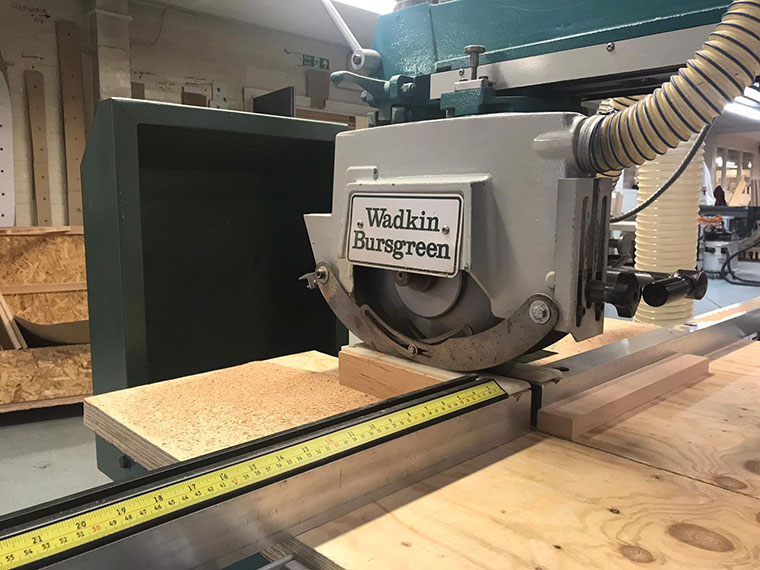
Danny also championed the importance of investing in tools and equipment, speaking in praise of the company’s new facility. “The new factory space has made everyone’s life so much easier. We have more space and have been able to set the workshop up in a more efficient setting, allowing everyone to set up their workstation or machine how they feel comfortable.”
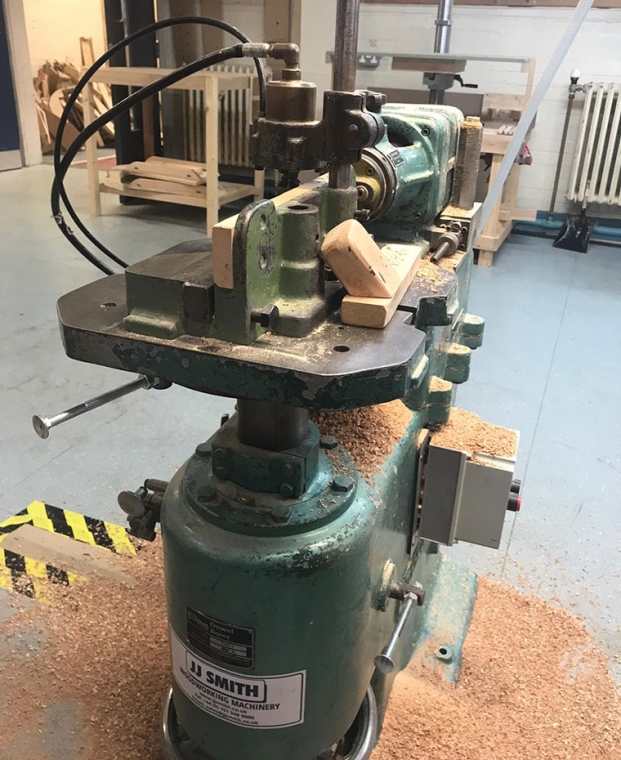
Danny also explains how skilled craftspeople are able to create higher-quality products — a refreshing change compared to the low-quality products that often result from cheap mass production. “You can really see the difference in our frames in terms of the quality of materials we use and the dedication to detail we put in,” he says. “We use a very good hardwood called beech, and only use plywood where necessary. We pride ourselves on the fact our frames can last a lifetime.”
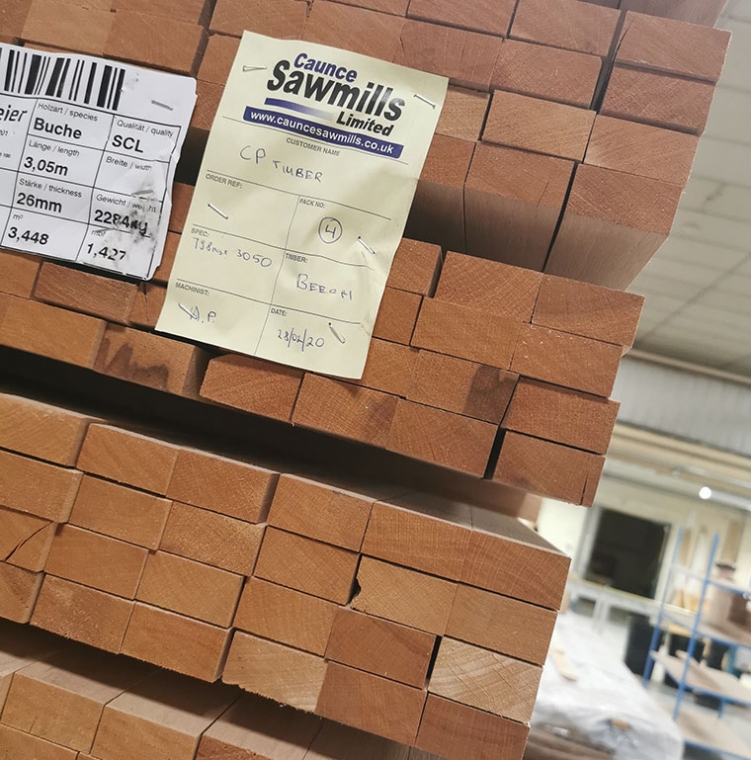
Speaking to young people who are considering pursuing a career in traditional trades like joinery, Danny notes: “My advice is be patient, as you can’t learn everything in a week and it takes time to gain the knowledge and skills required. But seeing the finished article that you have helped produce can be very rewarding.
“Furthermore, you don’t have to spend a lot of time studying to become a good framemaker or machinist. Hands-on training is one of the easiest ways to pick the job up — the majority of my team, myself included, haven’t had any formal qualifications for this career, yet we make arguably some of the best frames in the country.”









